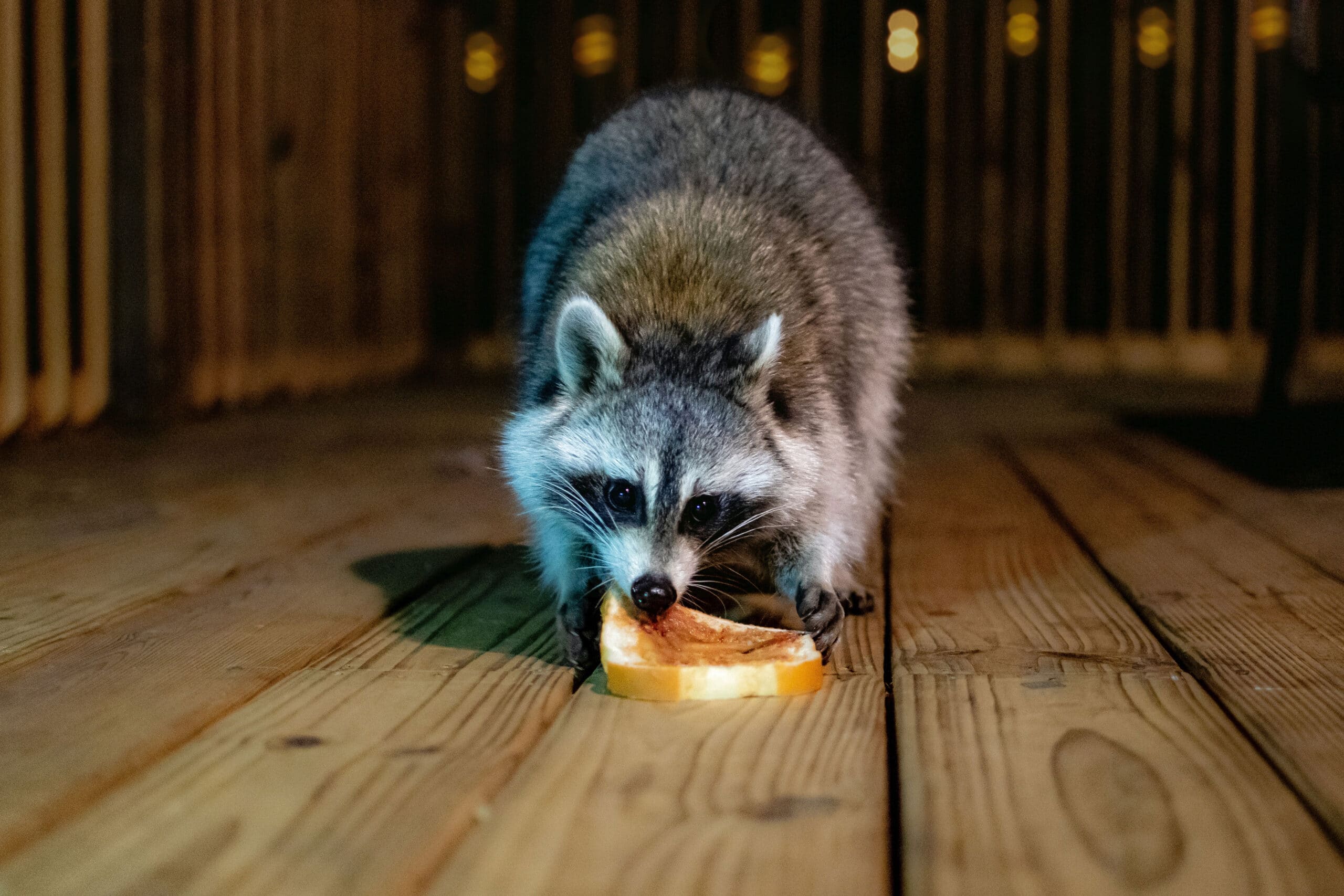Need Raccoon Removal ASAP?
Give us a call for 24/7 Emergency Wildlife Control & Removal in Dallas/Fort Worth.
(817) 606-7607Contact UsContact UsRaccoons are highly adaptable mammals with masked faces and ringed tails that are easily recognized. Despite their cuteness and apparent innocence, they can become a nuisance when they enter houses and gardens, where they cause harm and messes. Maintaining a peaceful coexistence requires a thorough understanding of raccoon behavior as well as the application of practical removal techniques. We will look into the world of raccoons in this article, examine their habits, and offer advice on how to get rid of them in a humane and safe manner.
The Raccoon’s Habits and Behaviors:
Raccoons are nocturnal, intelligent creatures with excellent adaptability and problem-solving abilities. They eat a variety of foods, including fruits, nuts, insects, small animals, and even human waste. They are omnivores. Although they are mostly found in wooded areas, they have adapted to urban and suburban areas because they can survive in a variety of environments.
Raccoons are skilled climbers, and they are frequently drawn to populated areas by readily available food sources like trash cans, bird feeders, and food left outside. In their search for shelter, they can seriously harm gardens, houses, and other buildings by tearing into roofs, attics, and crawl spaces.
Ethical Methods for Raccoon Removal:
Prevention: The best strategy for dealing with raccoons is by covering trash cans with tight-fitting lids, removing any fallen fruits or nuts, and bringing food inside at night. By sealing gaps, covering chimneys, and making sure vents are safe, you can block off access to potential entry points.
Habitat modification: By removing potential hiding places, you can make your property less alluring to raccoons. Clean up brush piles, trim tree branches away from buildings, and seal crawl spaces.
Repellents: Raccoons can be kept out of certain areas with the help of repellents, which use potent smells or unpleasant tastes to keep them out. These can be sprayed on garbage cans, plants in gardens, and other specific areas. They might not always work as well, though, and they could require to be applied multiple times.
Exclusion: Techniques for exclusion can be used to deal with raccoon issues that persist. This entails building defenses, like heavy-duty mesh or wire fencing, around weak spots, like decks, attics, and gardens. Before using exclusion techniques, make sure that all existing entry points are properly sealed to avoid trapping raccoons inside.
Professional Assistance: It is advised to seek professional assistance if a raccoon infestation persists or poses a serious risk. Raccoon removal and trapping can be done safely and humanely by wildlife control professionals. They can also offer suggestions for long-term defenses against intrusions in the future.
Important Considerations:
Raccoon removal must be done carefully and with respect for the wildlife. Raccoons are intelligent creatures that benefit the ecosystem by reducing the number of critters. Prioritize their welfare and opt for non-lethal methods whenever possible. To protect both the raccoons and the people involved, trapping and relocation should be done by experts.
Raccoon relocation is prohibited in many areas because of the danger of disease transmission and population disruption. Before attempting any removal techniques, always check the local laws.
A balanced strategy that prioritizes prevention, habitat modification, and humane removal techniques is needed to deal with raccoon intrusion. Raccoons can coexist peacefully with humans while maintaining a protective presence on your property if you are aware of their habits and take preventative action. Raccoons are a natural component of the ecosystem, so it is important to remove them responsibly, taking into account both their welfare and local laws.
Are you in need of raccoon removal? Our friendly operators at Dallas Fort Worth Wildlife Control are available now at (817) 606-7607. Find out more about our wildlife removal in Arlington and Fort Worth, TX.


